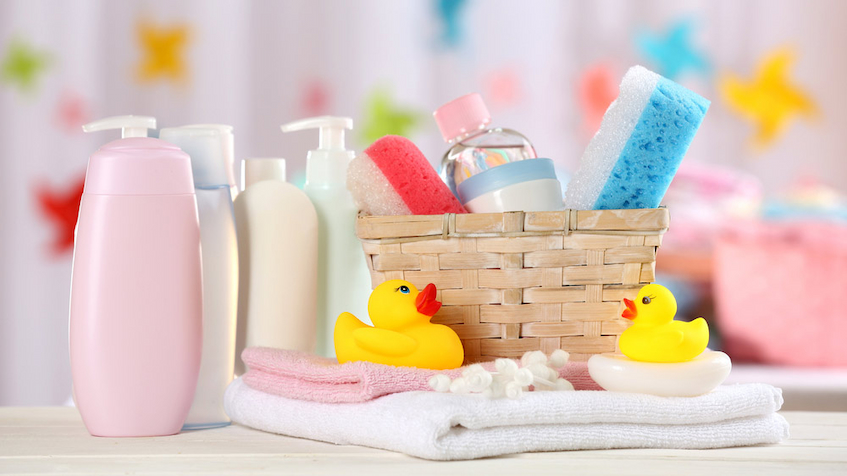
Organic Parenting Tips: Healthy Ways to Raise Your Baby
The modern world has taught us to deal with different conflicting situations, requirements and pressures at the same time. Although nature is full of good things, it is also full of harsh pollutants and chemicals, many of which are known to be harmful to our health. This may lead you to ask: How do you navigate all of this when raising kids, and what do you do if you want your kids to be nourished by nature and stay away from many of the world’s artificial substances? Going organic is one way to achieve this.
Making organic choices will not only benefit your children’s health and well-being but also the planet’s future sustainability. So, it pays to be informed about the benefits of going organic for you and your family. And you should start working on it as soon as possible because a child’s development is most crucial from conception through the first three years of life. During this time, the child’s body systems and brain are growing and developing faster than at any other time. Here are some simple yet useful ways for bringing up kids naturally and healthily.
Clothes

Source: fauveandco.com.au
Sadly, the majority of our clothing now contains unwanted additives that can increase our overall chemical load and aggravate or cause conditions like asthma or eczema. For this reason, you should buy only organic clothes for newborn babies.
This type of clothing is made from the best fabrics for your baby’s skin such as cotton and wool. These fabrics haven’t been grown, treated, or fed with synthetic fertilizers or pesticides. On the other hand, synthetic fabrics often contain chlorine bleach, dyes, flame retardants, stain repellents are other additional chemicals.
Going for this type of natural clothing will also make your baby feel much more comfortable. Wool, cotton, bamboo and other natural fibres naturally absorb moisture and let the skin breathe. They also help in temperature regulation which is something newborns especially struggle with.
Since organic cotton is grown without pesticides and with recycled rainwater, it is better for the environment. This type of cotton production results in lower carbon footprints and less fossil fuel consumption. Growing such cotton is also beneficial for preserving soil fertility and is less harmful to farmers.
Because organic clothes for newborn babies are gentle on the skin, your little one will feel more at ease wearing such clothing. No matter the weather, organic cotton helps you keep a healthy body temperature. It can absorb moisture while also ventilating cold air. As the material promotes air circulation, your baby won’t feel hot or perspiring. This type of cotton is appropriate for all seasons thanks to these special qualities. Therefore, you are not required to purchase new baby clothing each season.
Although organic clothes are gentle on babies skin, they are strong enough to withstand frequent washing by machine or hand. The robust cotton fibre does not break down or look to wear out after each washing. Clothes made of organically grown and produced cotton can last five times longer than those made of conventional cotton without degrading.
Although the initial cost of organic cotton baby clothing may be higher, the increased durability ensures that you get the most out of your investment. Thus, investing in cotton baby clothing is a wise choice.
Food
When it comes to healthy food, it is not what it contains that is only important – it’s also what it doesn’t contain that matters. Monosodium glutamate and aspartame are just two of the additives that are currently connected to behavioural and health issues. The organic standards forbid these.
Additionally, choosing organic food is better for the environment. Research demonstrates that organically grown foods benefits birds, butterflies, and other wildlife because it works with nature rather than against it. Farm animals are raised humanely, and antibiotics are not frequently given to them to prevent illness or promote growth.
While convenient, processed commercial baby foods are deficient in many nutrients and enzymes compared to fresh foods. And although organic processed foods are preferable to nonorganic ones, keep in mind that they’re still produced in factories and shouldn’t be used as a substitute for homemade food. Consider using them only occasionally as a backup or convenient supplement.
Babycare Products

Source: facebook.com
Baby wipes, ointments, lotions, creams, powders, oils, soaps, and sunscreens are just a few of the many products available on the market for caring for babies’ skin. Due to the lack of regulation in the cosmetics industry, many baby skin care products contain chemicals that could be harmful to your baby’s health.
Chemicals such as petroleum byproducts, preservatives, parabens, formaldehyde, dioxane, and phthalates are among the lengthy list of ingredients. Most shampoos and liquid soaps contain laurel sulphate, an irritant that can weaken a baby’s immune system and is used to give them a foamy texture. The fragrance is one of the ingredients that causes the most allergic reactions, including asthma attacks.
Organic baby products, on the other hand, are much kinder to a baby’s skin. This is so because most organic products are made with natural ingredients rather than harmful chemicals like pesticides. Additionally, a baby’s immature cells can easily absorb chemical substances into the body.


No Comments